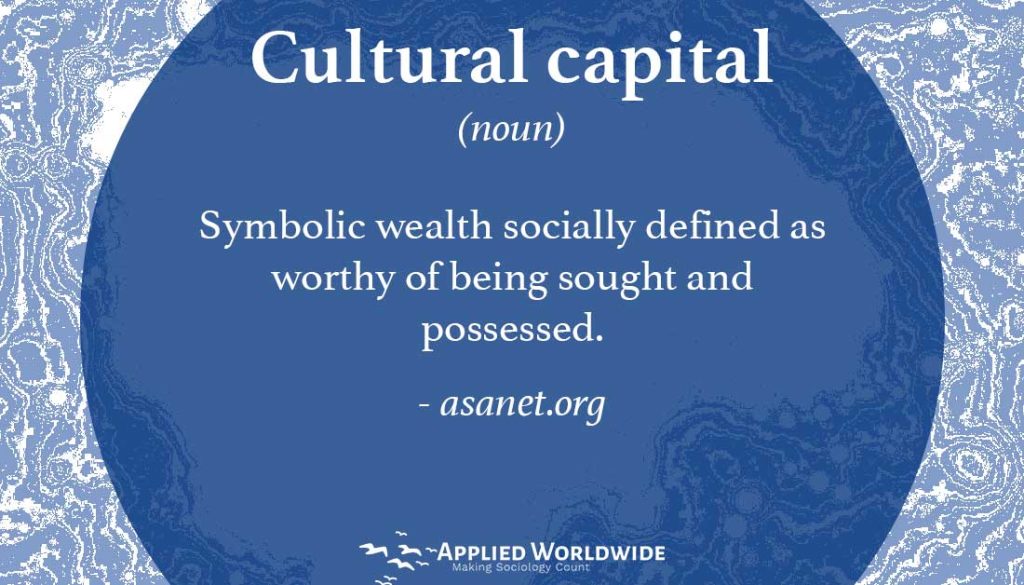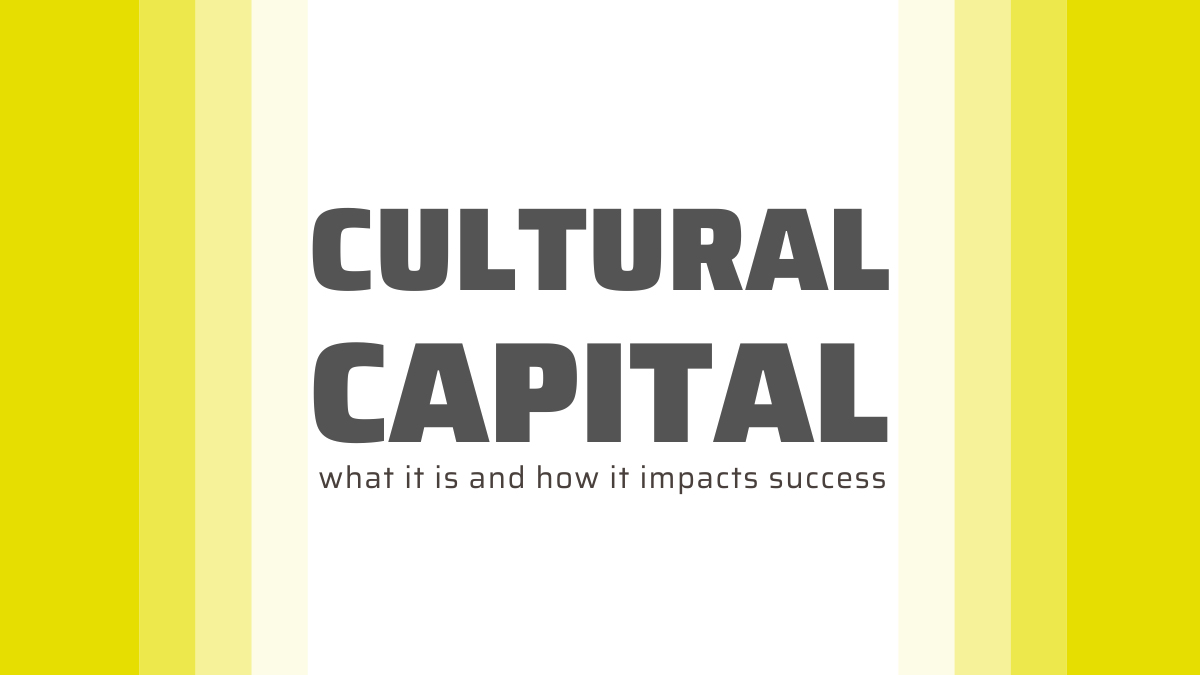Cultural capital is a concept that refers to the non-financial assets that individuals possess, such as education, knowledge, skills, and social connections, which can impact their social and economic success. In this article, I explore the concept of cultural capital in-depth, discussing how it can be leveraged for success.
What is Cultural Capital?
Cultural capital is a term coined by French sociologist Pierre Bourdieu in the 1970s. It refers to the non-financial assets that individuals possess, which can be used to gain social and economic advantages. These assets can include education, knowledge, skills, social connections, and taste among others.

How is Cultural Capital Acquired?
Cultural capital is acquired through various means, including education, socialization, and life experiences. Formal education is one of the most common ways of acquiring cultural capital, as it provides individuals with knowledge and skills that can be used to gain advantages in society. A college degree, for example, is a form of cultural capital. However, cultural capital can also be acquired through informal means, such as socialization.
For example, individuals who are raised in a family that values education and encourages learning may be more likely to acquire cultural capital through education than those who do not have these experiences. Similarly, those raised in wealthy families will acquire different tastes and knowledge compared to those raised in working class families. Those from a wealthy background might acquire a deep appreciation for art through exposure to globally recognized museums, opening doors for future financial gains in the world of art collection, while those from working class background may have never stepped foot in an art museum.
How Does Cultural Capital Impact Success?
Cultural capital can have a significant impact on an individual’s social and economic success. Individuals with higher levels of cultural capital are often able to leverage their knowledge, skills, and social connections to gain advantages in various areas of their lives. Even participation in extracurricular activities as a child can determine success in education and careers in adulthood.
In the workplace, for example, individuals with higher levels of cultural capital may have better job opportunities, higher salaries, and more opportunities for advancement. They may also be better equipped to navigate social situations and build professional networks.
Outside of the workplace, cultural capital can also impact an individual’s social status and overall quality of life. For example, individuals with higher levels of cultural capital may have greater access to cultural events and activities, as well as more opportunities to travel and explore different cultures, partly due to higher financial success in their careers.
How to Leverage Cultural Capital
To leverage cultural capital, individuals should first identify their strengths and areas of expertise. This can be done through self-reflection, feedback from others, and assessments of skills and knowledge. Once individuals have identified their strengths, they can then work to enhance and develop them further. This can be done through formal education, training, and professional development opportunities.
In addition to enhancing their skills and knowledge, individuals can also leverage their social connections to gain advantages. Building professional networks and relationships with others in their field can provide individuals with opportunities for mentorship, collaboration, and career advancement. In fact, researchers even discuss how social capital, or the social networks we are a part of, can help us accumulate cultural capital.
The Example of Entrepreneurship
One current application of cultural capital can be seen in the world of entrepreneurship. Entrepreneurs with higher levels of cultural capital are often better equipped to start and grow successful businesses. This success is due to the knowledge, skills, and social connections necessary to navigate the complex world of business and entrepreneurship. Even if we look specifically among those with business degrees, some will have more cultural capital and some will have less, helping determine where they lie in the hierarchy of entrepreneurship.
For example, an entrepreneur who has a strong understanding of marketing and branding, perhaps through watching family members successfully run a business, may be able to leverage this cultural capital to create a successful business. Similarly, an entrepreneur who has a wide network of professional connections may be able to tap into these connections to find investors or partners for their business. For those who lack cultural capital in those areas, building a business from the ground up will look different and present unique challenges.
Concluding Thoughts on Cultural Capital
Cultural capital is an important concept that can have a significant impact on social and economic success. By understanding what cultural capital is, how it is acquired, and how it can be leveraged, individuals can position themselves for greater success in their personal and professional lives. Whether you are a student, professional, or entrepreneur, cultural capital can be a valuable asset that can help you achieve your goals.
Sociology Consulting: How to be a Sociology Consultant







